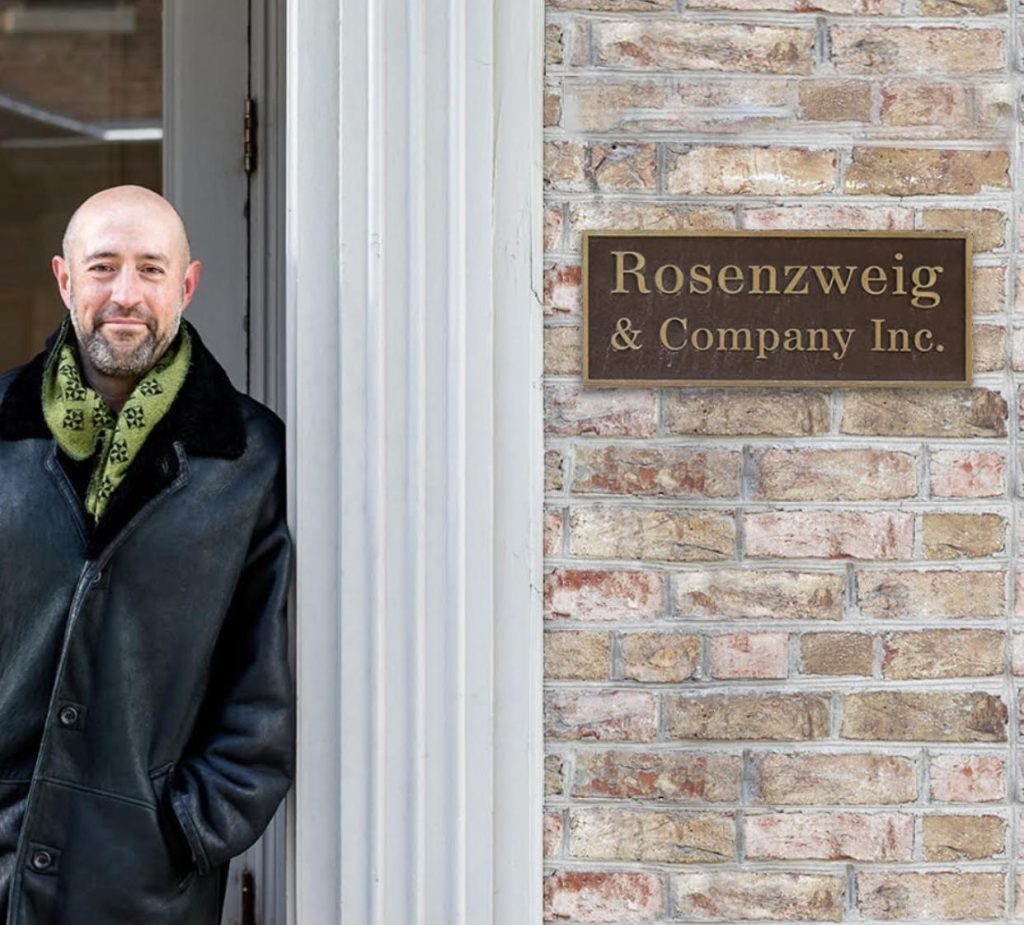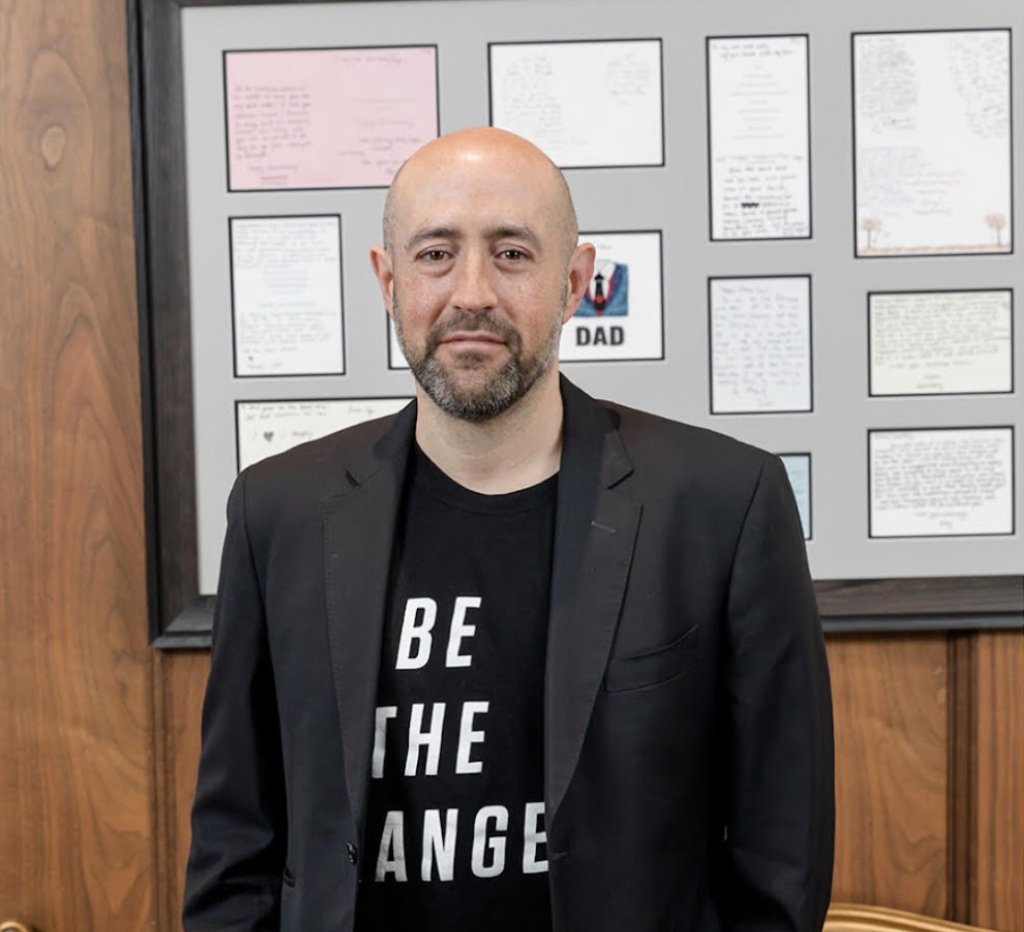The Argentine-Canadian philosopher Mario Bunge once observed that “science is morally neutral, but social science shows us that some moral codes are better than others.” As a young man, Jay Rosenzweig studied both philosophy and law at McGill University in Montreal. Bunge, a McGill professor and renowned philosopher whose writings in scientific realism and truth are some of the most important in the field, became a major influence for Jay.
As did a McGill law professor, Irwin Cotler, one of the world’s most respected human rights advocates.
Cotler has represented political prisoners from Nelson Mandela to Natan Sharansky, and he is the founder of the Raoul Wallenberg Centre for Human Rights, a unique international consortium of parliamentarians, scholars, jurists, human rights defenders, NGOs, and students united in the pursuit of justice for all. Jay serves as Board Chair for the organization.
Along with parents Rose and Myer Rosenzweig, these two professors helped shape Jay’s moral code and his approach to life and service – and business. No man is an island, we are all connected, and a full life is lived with purpose and in helping others.
“I don’t view my various activities as siloed – whether searching the globe for CEO candidates, writing music, hanging out with my family, investing in exciting start-ups, or challenging the status quo to give more women and BIPOC candidates meaningful leadership opportunities,” Jay says. “Sure, there are challenges today, but it’s a great period in human history to be alive. Things don’t remain static and can get even better…will get better.”
As Bunge, who died in 2020 at age 100, said about challenging the status quo: “Original philosophy is always deviant or even subversive.”
After a short stint in law, Jay moved into the field of executive recruitment and talent acquisition. After a decade at a global talent firm, his entrepreneurial spirit led to the establishment of Rosenzweig & Company in 2004. Jay has helped countless companies find ideal leaders to take their businesses to new levels, always keeping a special focus on inclusiveness and empowering women and minorities in senior-level positions.

Under his guidance, Rosenzweig & Co. has not only become an important player in the fight for equality in North America’s corporate world but also synonymous with transparency when it comes to helping clients meet business objectives. He describes his team as management consultants and talent evaluators and developers; more than simply executive recruiters.
Instilled in him by many great influences, including Bunge and Cotler, Jay is equipped with a strong moral code: he unequivocally believes in social justice, equality, and fairness. “I want a world, for example, where my two daughters have the exact same opportunities as my son,” he says. “I envision a day when we stop saying ‘women leaders’ or ‘black leaders’ and leaders are simply leaders; without the modifiers.”
For almost 20 years – long before it became fashionable – Jay has been doing his best to dismantle the “Old Boys Network” in the top echelons of the corporate world.
As part of this mission, Rosenzweig & Co. has been publishing its annual Rosenzweig Report since 2006, which not only tracks gender equality in the highest levels of leadership but also promotes ideals of inclusion and equity in all industries.
Over the years, personalities and leaders have contributed to the Rosenzweig Report by providing comments, quotes, and endorsements: from Canadian Prime Minister Justin Trudeau; #MeToo movement pioneer and actress Alyssa Milano; Facebook’s Sheryl Sandberg; author and alternative medicine advocate Deepak Chopra; billionaire sports and media entrepreneur Mark Cuban; TV host, author, and change-maker Van Jones; and Nelson Mandela’s politically active grandson Ndaba Mandela.
“I established the Rosenzweig Report in 2006 to assemble the facts regarding the number and percentage of women in top corporate jobs,” Jay says. “My intent was – and is – to provide corporate leaders and boards with information that would put their own practices and progress into statistical context and perhaps inspire them to do better. The report reflects my belief, supported by a number of studies, that companies benefit from having greater diversity at the table when reaching business decisions. Most importantly, it reflects my belief in the moral imperative of non-discrimination and equal opportunity for all.”
Jay has certainly shaken up the talent strategy business, where he continues to be at the top of his game. He’s now applying some of the same principles when it comes to investing. Examining his record, Jay’s investing is already meeting with the same success as his own business. He is investing in enterprises across industries like consumer, e-commerce, media, music, sports, FinTech, healthcare, environmental-friendly alternative energies, and transportation and infrastructure.
A few examples of Jay’s astute investment calls include Meta (AI business acquired in 2017 by the Chan Zuckerberg initiative), Coinbase (subsequently listed on Nasdaq), and Side (real estate tech startup recently valued at $2.5 B). There are several others, including several fast-growing Web3 businesses, where he invested alongside the likes of Mark Cuban, Gary Vaynerchuk, Quincy Jones, and Ashton Kutcher.
“I’ve been so fortunate over the years meeting so many eclectic and diverse individuals and leaders around the world,” Jay says. “I’ve been exposed to so many extraordinary ideas and start-up plans. Sometimes I invest, sometimes I remain solely in an advisory role. I have been blessed to have made a number of really successful investments over the past five years or so. It’s difficult to pick favorites, it’s sort of like, ‘I love all my kids equally’!”

So, what makes Jay move beyond advising and into investing his own money in a venture?
“The very first thing I always look for is quality of leadership,” Jay says. “I ask questions like: Has the individual had previous success as an entrepreneur? Can they mobilize a team to do the hard work of introducing a product or service to the market? Second, is the idea viable and can it be ‘scaled up’ to bring a return on investment? And third, is that product or service sustainable? Does it create ‘social capital’ and operate with purpose-driven objectives?”
For example, take a company like Hyperloop, originally conceived of by Elon Musk, which has the potential to revolutionize mobility by ferrying people and cargo at speeds of 750 miles per hour. Jay has been earning shares in Hyperloop Transportation Technologies over the years, by strategically partnering with them, helping them with talent strategy work and connecting them with key people around the world through his network.
“It’s an all-out team effort. We are strategic partners versus simply hired guns, a role we cherish when working with our clients,” Jay says.
Another terrific example is CryptoSlam, which was introduced to Jay by Mark Cuban. Jay invested and Rosenzweig & Co. recently found the Chief Technology Officer and the Vice-President of engineering for the NFT (Non-fungible token) company.
“The NFT space is garnering so much attention and growing so fast, but at the same time the talent market is as competitive as I’ve ever seen in the tech space,” Jay says. “CryptoSlam is in a unique position as both an early-stage startup and a key platform in the NFT space with a dominant market position. They needed unique technology leaders who know how to build companies and technology infrastructure while maintaining their competitive moat in the marketplace.”
Last year, the start-up economy attracted a record $621 billion in funding from venture capitalists. Not all the investments will be on winners. How does Jay separate the wheat from the chaff?
“Red flags for me,” he says, “are when an entrepreneur has difficulty delegating, believing they have to do everything themselves, rather than assembling a team and trusting them to execute. Self-confidence is one thing, but having an inflated ego puts the entire enterprise at risk.”
Sound advice.

















